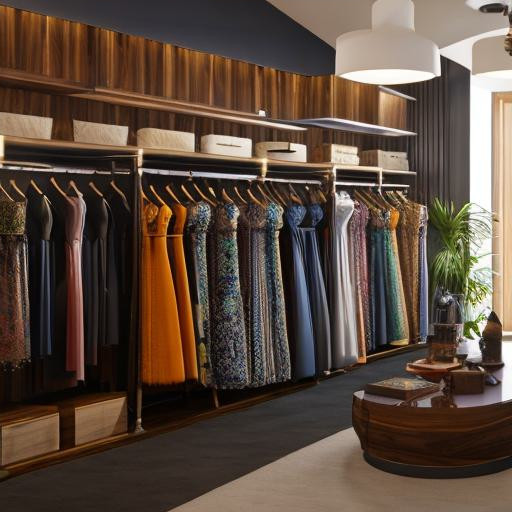

Insurance policies often contain exclusions, which are specific conditions or events that are not covered by the policy. These exclusions are designed to limit the insurer's liability and protect their financial interests. As a policyholder, it's essential to understand these exclusions to ensure that you have adequate coverage for the risks you face. In this way, you can avoid surprises when it comes time to file a claim and potentially face a denied claim.
Consider a manufacturing business that produces and sells a range of consumer goods. One day, a customer sues the business, claiming that one of the products sold by the company caused them harm. The business owner, who has taken out product liability insurance, can make a claim for the legal costs and damages involved in the lawsuit.
The product liability insurance policy covers the business against claims arising from the use of its products. This includes legal defense costs, court costs, and any damages awarded to the claimant. The policy helps the business avoid significant financial losses and ensures that it can continue to operate even if it faces a lawsuit.
However, the product liability insurance policy may have some exclusions that the business owner should be aware of. For example, the policy may not cover damages caused by intentional acts or gross negligence. The policy may also have limits on the maximum amount of coverage provided, so the business owner should ensure that the coverage is adequate to meet their needs.
Tom owns a small construction company that specializes in remodeling kitchens and bathrooms. One day, while working on a client's bathroom, one of Tom's employees accidentally damaged the bathroom tiles and fixtures, causing water to leak and damage the ceiling of the apartment below.
Fortunately, Tom had purchased a type of coverage called "contractor's liability insurance," which covers damages or injuries caused by the company's operations. This insurance policy helped Tom to cover the cost of repairing the damaged bathroom and ceiling, as well as the legal expenses associated with the incident.
However, it's important to note that the contractor's liability insurance policy may have some exclusions that Tom should be aware of. For instance, the policy may not cover damages caused by intentional acts or criminal behavior. Additionally, the policy may not cover damages caused by certain types of work, such as environmental damage or damage caused by hazardous materials. Tom should carefully review the policy and understand the coverage provided to ensure that he has adequate protection for his business.

Let's say you run a restaurant and a customer slips and falls on a wet floor, injuring themselves. The customer sues your restaurant, claiming that the injury was a result of negligence on your part. In this situation, having general liability insurance can help you mitigate the losses from the lawsuit.
General liability insurance protects your business against claims of bodily injury, property damage, and personal injury. In this scenario, it can cover the legal fees, court costs, and damages that result from the lawsuit filed by the customer. This insurance policy can help your business avoid significant financial losses that could arise from a lawsuit.
However, general liability insurance may have some exclusions that the business owner should be aware of. For example, it may not cover damages caused intentionally, by the insured's employees, or by certain types of professional services. It is important for the business owner to carefully review the policy and understand the scope of the coverage provided.
Imagine a small retail business that operates out of a rented storefront. The business carries a large inventory of high-end clothing and accessories, and the store is always bustling with customers. One day, a fire breaks out in the building due to an electrical fault and causes significant damage to the store and its contents.
The business owner, who has taken out a comprehensive commercial property insurance policy, can make a claim for the damages suffered. The policy covers the cost of repairing or replacing the damaged property, including the inventory, fixtures, and fittings. This helps the business get back on its feet quickly and ensures that it does not suffer significant financial losses.
However, the commercial property insurance policy may have some exclusions that the business owner should be aware of. For example, the policy may not cover damages caused by floods, earthquakes, or acts of terrorism. The policy may also have limits on the maximum amount of coverage provided, so the business owner should ensure that the coverage is adequate to meet their needs.

John is the owner of a small manufacturing company that produces and sells automotive parts. The company has been growing steadily, and John has invested heavily in modernizing the equipment and hiring skilled workers to improve production efficiency. However, a sudden flood in the area caused significant damage to the manufacturing facility, rendering the equipment unusable and causing a halt in production.
Fortunately, John had taken out a comprehensive commercial property insurance policy that covered damages from natural disasters, including floods. The policy helped John quickly rebuild the manufacturing facility and replace the damaged equipment, ensuring that production could resume as soon as possible. This prevented significant financial losses that the company could have suffered due to the stoppage of production.
However, John realized that the commercial property insurance policy may not have covered all types of natural disasters, such as earthquakes or landslides. Additionally, the policy may have some exclusions related to the age and condition of the equipment and building, which John may have overlooked. To avoid such losses in the future, John decided to review and update his insurance policy regularly to ensure that he had adequate coverage.
John also recognized the importance of having business interruption insurance, which covers losses caused by the interruption of business operations due to an insured event. This type of policy would have covered the loss of income during the period when the manufacturing facility was out of operation due to the flood. He decided to add this coverage to his policy to ensure that he had adequate protection in case of future business interruptions.
Although John had to pay a higher premium for the updated policy, he knew that it was necessary to protect his business against unforeseen events that could cause significant financial losses. He felt more secure knowing that his insurance policies provided adequate coverage, and he could focus on growing his business with peace of mind.
Anna runs a small restaurant that specializes in international cuisine. One day, a customer claimed that they got food poisoning after eating at Anna's restaurant, resulting in medical expenses and lost wages. The customer sued Anna's restaurant for damages.
Fortunately, Anna had purchased a type of coverage called "general liability insurance," which covers damages or injuries caused by the business's operations, products, or services. This insurance policy helped Anna to cover the cost of the lawsuit and avoid a potentially expensive legal battle.
However, it's important to note that the general liability insurance policy may have some exclusions that Anna should be aware of. For instance, the policy may not cover damages caused by intentional acts or criminal behavior. Additionally, the policy may not cover damages caused by certain types of work, such as environmental damage or damage caused by hazardous materials. Anna should carefully review the policy and understand the coverage provided to ensure that she has adequate protection for her business.

Emily owns a small boutique that sells clothing and accessories. One day, a customer claimed that a piece of jewelry purchased from Emily's store caused an allergic reaction on their skin, resulting in medical expenses and lost wages. The customer sued Emily's boutique for damages.
Fortunately, Emily had purchased a type of coverage called "product liability insurance," which covers damages or injuries caused by a product sold by the business. This insurance policy helped Emily to cover the cost of the lawsuit and avoid a potentially expensive legal battle.
However, it's important to note that the product liability insurance policy may have some exclusions that Emily should be aware of. For instance, the policy may not cover damages caused by products that were not sold by the business, or damages caused by products that were altered or modified by the customer. Additionally, the policy may not cover damages caused by products that were used in a way that was not intended or foreseeable. Emily should carefully review the policy and understand the coverage provided to ensure that she has adequate protection for her business.
Imagine a business that relies heavily on its computer systems to store and process important customer data. One day, a cybercriminal hacks into the business's system and steals confidential information, such as customer records and financial data. In this case, having cyber liability insurance can help the business mitigate the losses from the cyber attack.
Cyber liability insurance provides coverage against losses resulting from data breaches and other cyber-related events. This includes coverage for legal fees, notification costs, and liability claims arising from the data breach. The policy can help the business quickly respond to the cyber attack and prevent significant financial losses.
However, the cyber liability insurance policy may have some exclusions that the business owner should be aware of. For example, it may not cover damages resulting from intentional acts, losses from failure to follow security protocols, or losses from the theft of non-electronic data. The business owner should carefully review the policy and understand the coverage provided.

Mark runs a small technology company that specializes in building custom software solutions for businesses. One day, a client claimed that the software created by Mark's company had a security vulnerability that led to a data breach, resulting in the client's financial losses and reputational damage.
Fortunately, Mark had purchased a type of coverage called "errors and omissions insurance" (also known as professional liability insurance), which covers damages or losses caused by the company's negligence or mistakes. This insurance policy helped Mark to cover the cost of the lawsuit and avoid a potentially expensive legal battle.
However, it's important to note that the errors and omissions insurance policy may have some exclusions that Mark should be aware of. For instance, the policy may not cover damages caused by intentional acts or criminal behavior. Additionally, the policy may not cover damages caused by a breach of contract or a failure to deliver the agreed-upon services. Mark should carefully review the policy and understand the coverage provided to ensure that he has adequate protection for his business.
John owns a landscaping business that provides services such as lawn care, tree trimming, and garden design. One day, while working on a customer's property, John accidentally damaged the customer's expensive outdoor lighting system. The customer demanded that John pay for the damages, which amounted to several thousand dollars.
Fortunately, John had purchased a type of coverage called "general liability insurance," which covers damages or injuries caused by the business or its employees. This insurance policy helped John to cover the cost of the damages and avoid a potentially expensive lawsuit.
However, it's important to note that the general liability insurance policy may have some exclusions that John should be aware of. For instance, the policy may not cover damages caused by intentional acts or criminal behavior. Additionally, the policy may not cover damages caused by certain types of work, such as environmental damage or damage caused by hazardous materials. John should carefully review the policy and understand the coverage provided to ensure that he has adequate protection for his business.

Anna runs a small bakery that supplies bread and pastries to local cafes and restaurants. One day, a delivery van carrying her bakery products was involved in an accident, resulting in significant damages to the vehicle and the bakery products.
Fortunately, Anna had purchased a type of coverage called "commercial auto insurance," which covers damages to the business's vehicles and liability for any injuries or damages caused by the business's vehicles. This insurance policy helped Anna to cover the cost of the damages to the vehicle and the bakery products, as well as the legal expenses associated with any liability claims.
However, it's important to note that the commercial auto insurance policy may have some exclusions that Anna should be aware of. For instance, the policy may not cover damages caused by intentional acts or criminal behavior. Additionally, the policy may not cover damages caused by certain types of events, such as earthquakes or floods. Anna should carefully review the policy and understand the coverage provided to ensure that she has adequate protection for her business.
John runs a small construction business that specializes in remodeling homes. One day, while working on a project, one of John's employees accidentally caused damage to the client's property, resulting in expensive repairs.
Fortunately, John had purchased a type of coverage called "commercial property insurance," which covers damages to the business's property, as well as damages caused by the business's operations. This insurance policy helped John to cover the cost of the repairs and avoid a potentially expensive lawsuit.
However, it's important to note that the commercial property insurance policy may have some exclusions that John should be aware of. For instance, the policy may not cover damages caused by intentional acts or criminal behavior. Additionally, the policy may not cover damages caused by certain types of events, such as earthquakes or floods. John should carefully review the policy and understand the coverage provided to ensure that he has adequate protection for his business.
Sara owns a small retail store that sells handmade crafts and gifts. One day, a customer slipped and fell on a wet spot on the store's floor, resulting in injuries and medical expenses. The customer sued Sara's store for damages.
Fortunately, Sara had purchased a type of coverage called "commercial general liability insurance," which covers damages or injuries caused by the business's operations, products, or services. This insurance policy helped Sara to cover the cost of the lawsuit and avoid a potentially expensive legal battle.
However, it's important to note that the commercial general liability insurance policy may have some exclusions that Sara should be aware of. For instance, the policy may not cover damages caused by intentional acts or criminal behavior. Additionally, the policy may not cover damages caused by certain types of events, such as natural disasters or terrorist attacks. Sara should carefully review the policy and understand the coverage provided to ensure that she has adequate protection for her business.
Samantha runs a small coffee shop that is popular among the local community. One day, a customer slipped and fell on a wet spot on the floor, injuring their back. The customer sued Samantha's coffee shop for the medical expenses and lost wages resulting from the injury.
Fortunately, Samantha had purchased a type of coverage called "workers' compensation insurance," which covers the medical expenses and lost wages of employees who are injured on the job. This insurance policy helped Samantha to cover the cost of the lawsuit and avoid a potentially expensive legal battle.
However, it's important to note that the workers' compensation insurance policy may have some exclusions that Samantha should be aware of. For instance, the policy may not cover injuries that occur outside of the workplace or injuries that are caused by employee misconduct. Additionally, the policy may not cover illnesses or diseases that are not directly related to the job. Samantha should carefully review the policy and understand the coverage provided to ensure that she has adequate protection for her business.

John owns a small retail store that sells electronic gadgets and accessories. One night, his store was broken into, and thieves stole a significant amount of inventory, including expensive smartphones and laptops.
Fortunately, John had purchased a type of coverage called "commercial property insurance," which provides protection against damages or losses to the business's physical assets, such as buildings, inventory, and equipment. This insurance policy helped John to cover the cost of the stolen inventory and any damages caused by the break-in.
However, it's important to note that the commercial property insurance policy may have some exclusions that John should be aware of. For instance, the policy may not cover damages caused by intentional acts or criminal behavior by the business owner or employees. Additionally, the policy may not cover damages caused by certain types of events, such as earthquakes or floods. John should carefully review the policy and understand the coverage provided to ensure that he has adequate protection for his business.
Emily is the owner of a small consulting firm that provides strategic planning and project management services to clients. One day, one of her clients accused her of providing inadequate services, resulting in significant financial losses to the client's business. The client decided to sue Emily's firm for breach of contract and claimed damages for lost profits and other expenses.
Fortunately, Emily had purchased a type of coverage called "professional liability insurance," also known as "errors and omissions insurance," which protects businesses against claims of negligence or inadequate work. This insurance policy helped Emily to cover the legal fees associated with the lawsuit, as well as any damages or settlements awarded to the client.
However, it's important to note that the professional liability insurance policy may have some exclusions that Emily should be aware of. For instance, the policy may not cover intentional acts, such as fraud or criminal behavior. Additionally, the policy may not cover damages caused by certain types of events, such as natural disasters or cyber attacks. Emily should carefully review the policy and understand the coverage provided to ensure that she has adequate protection for her business.

In conclusion, commercial insurance is essential for any business owner to protect their assets and mitigate potential losses. However, it is crucial to understand the exclusions in the policy and ensure that the coverage purchased matches the specific needs of the business. Business owners should work closely with their insurance agents to review their policies periodically and make any necessary updates or adjustments. By being proactive and informed about their coverage, business owners can minimize their risk exposure and continue to operate with peace of mind.
Last Update: February 2023